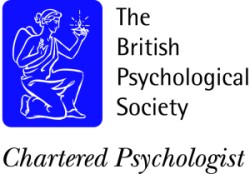In our previous post, we thought it would be useful to give you, in the one place, the contact details of the important organizations that you may wish to contact at some point regarding psychometrics (e.g., standards, quality assurance).
In this second, related post, we will explain, briefly, who the organizations are. Anything other than a brief description would be a lot bigger than a blog post!! Also, if you need to find out more about the organizations than presented here, it would not be difficult for you to source this information yourself using an Internet search engine (e.g., Google).
As previously, we will start with the British Psychological Society (BPS):
1. The British Psychological Society (BPS)
The British Psychological Society (BPS) is the representative body for psychology and psychologists in the UK. It is not a trade union but is a registered charity in England and Wales (Charity Registration Number: 229642) and in Scotland (Charity Registration Number: SC039492). The Society was formed in 1901 and has more than 45,000 members. Through its Royal Charter, the Society is charged with overseeing psychology and psychologists. It has responsibility for the development, promotion, and application of pure and applied psychology for the public good.
The British Psychological SocietySt Andrews House
48 Princess Road East
Leicester
LE1 7DR
Tel: + 44 (1) 116 254 9568
Fax: + 44 (1) 116 227 1314
Email: enquiry@bps.org.uk
Web: www.bps.org.uk
In the previous Blog, we mentioned that the BPS has a dedicated Psychological Testing Centre (PTC). This is what the PTC does:
The Psychological Testing Centre (PTC)
The BPS’s Psychological Testing Centre (PTC) provides information and services relating to standards in tests and testing for test takers, test users, test developers, and members of the public. The PTC administers the verification and quality assurance process and the registration of qualified test users. It provides a dedicated customer service via its website www.psychtesting.org.uk, via email enquiry@psychtesting.org.uk or via the telephone + 44 (1) 116 252 9530.
2. The Psychological Society of Ireland (PSI)
The Psychological Society of Ireland (PSI) is the representative body for psychology and psychologists in Ireland. Its primary object is to advance psychology as a pure and applied science in Ireland and elsewhere. Psychology is not at present regulated by statute in Ireland. In 1988, the Society initiated its own non-statutory Register to promote high standards of behaviour, competence and practice within the profession. The PSI now has over 2000 members, and is a hub for psychologists in a diverse range of employment settings and specialisations.
The Psychological Society of Ireland (PSI)Floor 2
Grantham House
Grantham Street
Dublin 2
Tel: + 353 (1) 474 9160
Fax: + 353 (1) 424 4051
Email: info@psihq.ie
Web: www.psihq.ie
Whilst many countries have their own national organizations to guide the psychology profession, many of these in Europe have joined together to explore issues of mutual interest. The European Federation of Psychologists’ Associations (EFPA) is important to us as test users and trainers as the new standards are derived from the substantial work carried out by EFPA’s ‘Standing Committee on Tests and Testing: SCTT’ over the last number of years. Some details about EFPA:
3. European Federation of Psychologists’ Associations
Currently 25 of the 35 member associations of the European Federation of Psychologists’ Associations (EFPA) have nominated Standing Committee on Tests and Testing (SCTT). SCTT was establishing in 1999 to carry on the work of the previous Task Force on Tests and Testing (1995-1999). Following the path initiated by the Task Force, the main goal of the SCTT continues to be that of organizing and promoting actions aimed at improving psychological testing practices in Europe. During these past years the Task Force and latterly the SCTT have developed a range of projects and actions with this goal in mind. Notably these have included the development of Test Review Criteria and the development of Test User standards with a three-level qualification model.
We hope that this brief post has been useful. However, as we have mentioned before, don’t be afraid to contact us for help or advice if there is still something that you are unsure of.
Barbara and Conor

